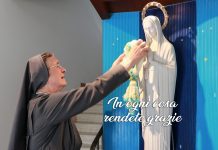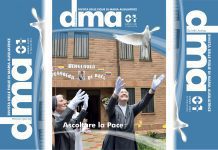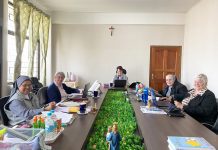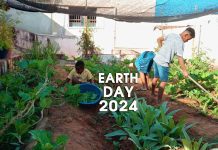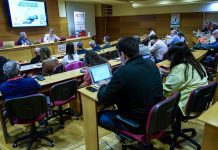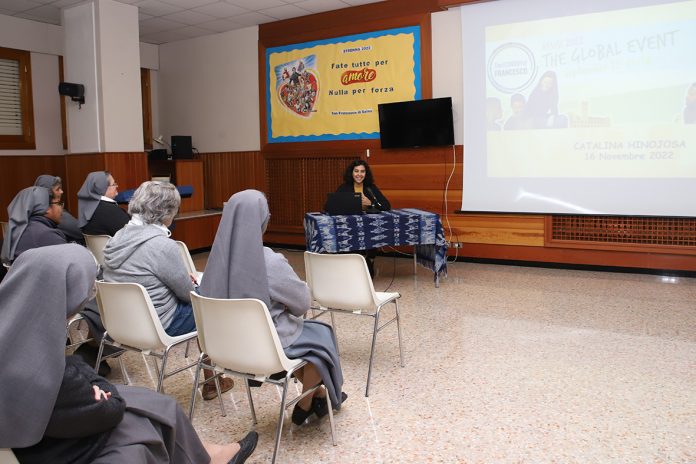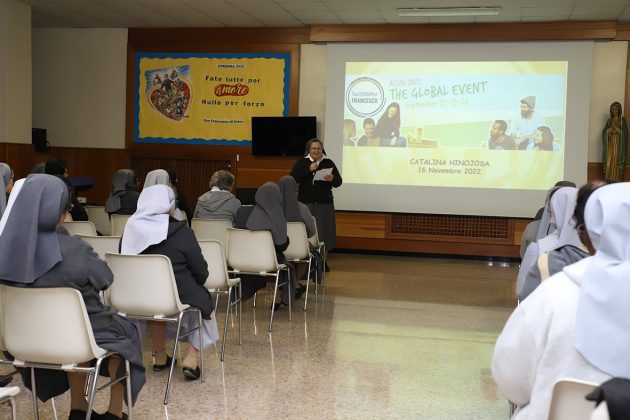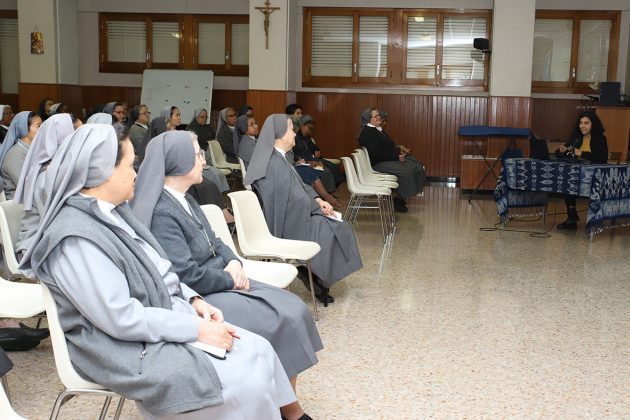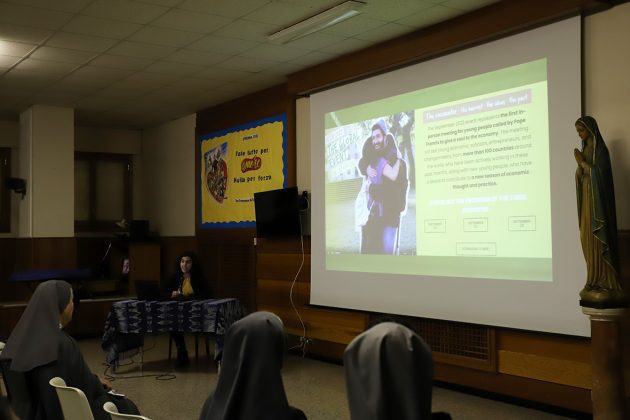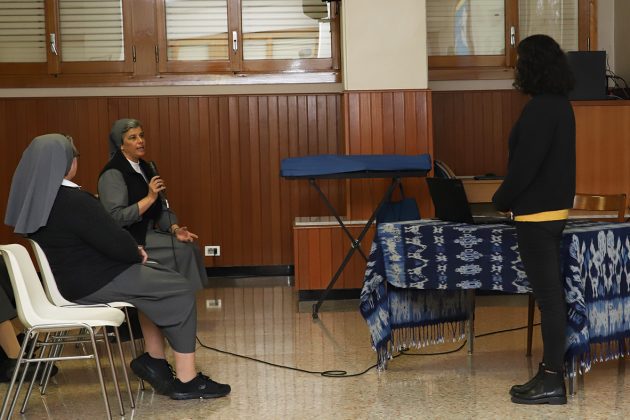Rome (Italy). On 16 November 2022, Mary Help of Christians Community of the Generalate (RCG) and the New Provincial Economers present in the Generalate for the Formation Meeting, had a meeting with Catalina Salomé Hinojosa, a young woman engaged in the Economy of Francis (EoF), the international process of young economists, entrepreneurs, and change-makers who responded to Pope Francis’ call to join a process of inclusive dialogue and young global change, towards a new economy.
Catalina, originally from Ecuador and a member of the Focolare Movement, testifies how it was her family who educated her in solidarity with the poorest from an early age, nurturing a sensitivity that always led her to ask herself “What can I do, in what way can I really contribute to a more just and equitable world?” Working as an administrative consultant of the Justice, Peace, and Integrity Commission of the creation of the USG-UISG (Union of Superiors/and Generals), she was also able to deepen, in the light of the Gospel, the vocation to service and promotion of the most disadvantaged.
Presenting Francis’ economy process, in which she has participated since the beginning, she shared how the Holy Father’s call to young people to be protagonists of change with prophetic actions, left a strong imprint on her life and that of the 2,000 young people involved in this adventure, sharing projects and paths of change, so that the economy may re-animate the human being.
In these three years, from the Pope’s appeal on 1 May 2019, passing through the pandemic, young people have created and carried on a large international network of work and discussion in 12 large thematic areas or Villages: Work and care; Management and gift; Finance and humanity; Energy and poverty; Vocation and profit; Policies for happiness; CO2 of inequality; Business and peace; Economy and woman; Companies in transition; Life and lifestyles.
The young woman illustrated to the FMA the concrete work with her team from the Agriculture and Justice Village, elements that in various countries of the world are unfortunately linked by mechanisms that put the territories and the populations that inhabit them at risk. “It was”, says Catalina, “a comparison of ideas and experiences to promote an economy of peace and not of war, which counteracts the proliferation of weapons, which takes care of creation and does not plunder it, which fights poverty in all its forms and reduces inequalities, a solidarity economy, a more humane economy.”
With joy and enthusiasm, she then recalled the great event of the previous month of September, in which over a thousand young economists, entrepreneurs, and activists under 35, coming from over one hundred countries around the world, were able to meet in Assisi for the three days of Economy of Francis, where she was finally able to embrace, get to know in presence, and have a closer exchange with the young people of her team.
“We young economists, entrepreneurs, agents of change, called here to Assisi from all over the world, aware of the responsibility that weighs on our generation, now commit ourselves, individually and all together, to spend our lives so that the economy of today and tomorrow will become an Economy of the Gospel.”
These are the words of the Pact for the economy, signed with Pope Francis on 24 September at the conclusion of the event, words of hope for everyone, which express the desire and concrete commitment of young people to live by creating a network, promoting a change of mentality, and a life-oriented entrepreneurial style.



